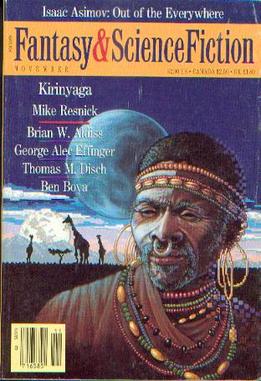I was at BristolCon this weekend (first since the Before Times!), and there was a panel entitled 'Love as a Positive Force', discussing why we should have love in all its forms in sff. So:
None of it has to be perfect, and certainly not utopian. The characters can still argue, face difficulties in their various relationships, but the potential for layered character relationships is there. You could even extend that to community, with them working together, generally in synch, with the tension caused by situations, external pressures, and unintended consequences of innocent acts.
Part of that is of interest to me, as I prefer to look at the smaller scale impacts upon individuals, but it could equally be scaled up to larger situations, and resources (for instance) being the cause of strife between two decent communities/civilisations, which are brought to the edge of conflict, and have to work out how to manage before both going down the road to destruction.
Which also links in to the worst trope in romance, and other genres: this could all have been sorted out if you had bleeding well talked in the first place! And that kind of links back to @Mon0Zer0's post about Quaker meetings.
- familial love (why does it have to be they-killed-my-family-so-revenge?), such as a supportive family giving the MC the strength to face the big bad;
- platonic love, admitting that the MC's best friend is a loving relationship does not make it sexual, but gives the basis for mutual strength, and going into danger for each other, and could even be described as a partnership; and
- sexual/romantic love, where the character does what they do for their sexual partner, the co-parent of their children, their potential date, etc.
None of it has to be perfect, and certainly not utopian. The characters can still argue, face difficulties in their various relationships, but the potential for layered character relationships is there. You could even extend that to community, with them working together, generally in synch, with the tension caused by situations, external pressures, and unintended consequences of innocent acts.
Part of that is of interest to me, as I prefer to look at the smaller scale impacts upon individuals, but it could equally be scaled up to larger situations, and resources (for instance) being the cause of strife between two decent communities/civilisations, which are brought to the edge of conflict, and have to work out how to manage before both going down the road to destruction.
Which also links in to the worst trope in romance, and other genres: this could all have been sorted out if you had bleeding well talked in the first place! And that kind of links back to @Mon0Zer0's post about Quaker meetings.


